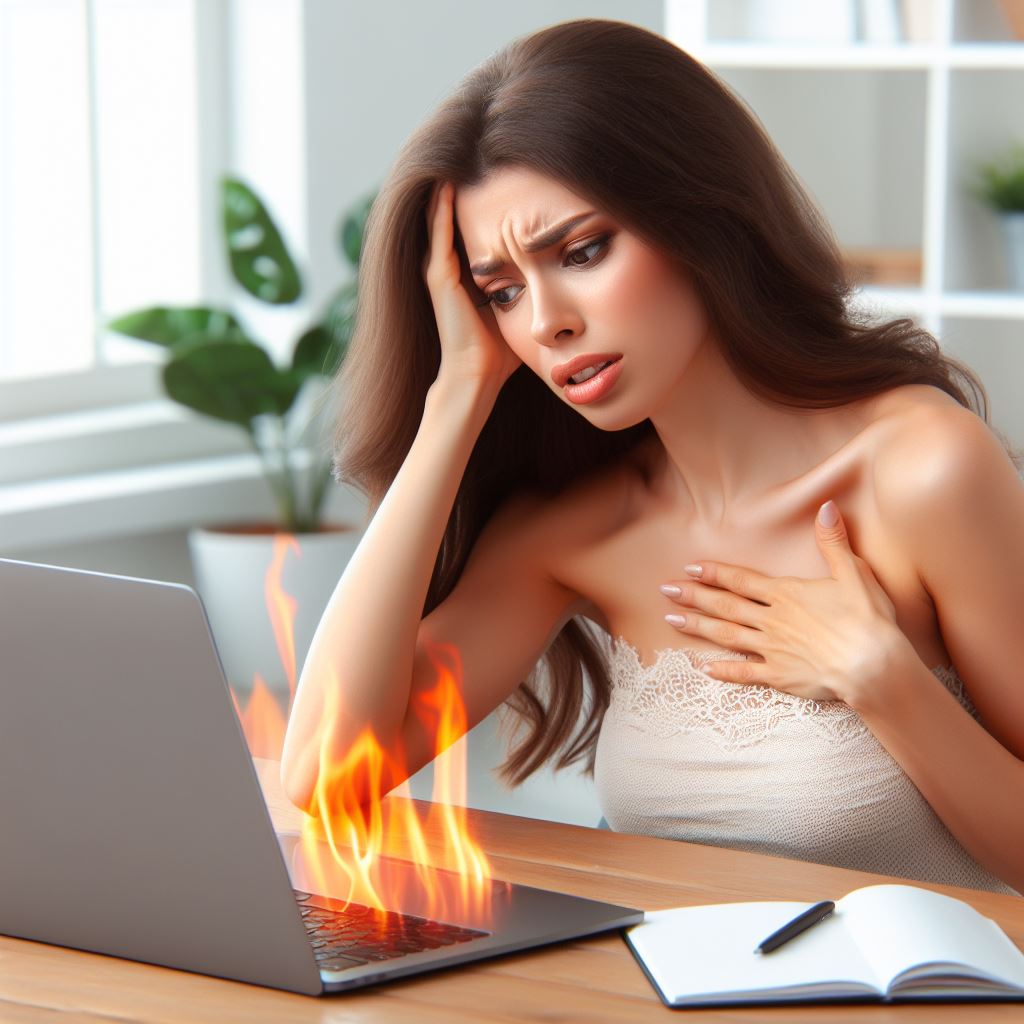The Heat Inside: How to Understand Why Your Laptop Is Hot?
Introduction:
In our fast-paced digital age, laptops have become an indispensable tool for work, entertainment and communication. However, as we use them for increasingly demanding tasks, one problem remains: heat. Have you ever wondered why your laptop gets hot? What causes it?
Is it something to worry about? Let's delve into this topic to shed light on the mystery behind the warmth emanating from your trusty device.
Why is my laptop getting hot?
Q: Why does my laptop get hot after prolonged use?
A: Laptops contain various components such as CPU, GPU and hard drive, which generate heat during operation. This heat is a natural byproduct of the electrical energy consumed by these components while performing tasks.
Q: What causes my laptop components to generate heat?
A: The main culprits are the CPU (Central Processing Unit) and GPU (Graphics Processing Unit). These components are the workhorses of your laptop, executing millions of calculations per second. As they operate, they consume energy, which is then dissipated as heat.
Q: Are there other factors that contribute to heat buildup in laptops?
A: Yes, in addition to the CPU and GPU, other components such as hard drive, memory modules, and power supply also generate heat during operation. Additionally, factors such as inadequate cooling systems, dust accumulation, and environmental conditions can exacerbate heat buildup.
Understand the role of cooling systems:
Q: How does my laptop cool down?
A: Laptops employ various cooling mechanisms to dissipate heat and maintain optimal operating temperatures. These include fans, heatsinks, and thermal paste.
Q: What is the role of fans in laptop cooling?
A: Fans are crucial components that circulate air inside the laptop chassis to dissipate heat. They draw in cooler air from the environment and expel hot air generated by internal components.
Q: What are heat sinks and how do they contribute to cooling?
A: Heatsinks are metal structures attached to critical components such as the CPU and GPU. They absorb heat from these components and dissipate it to the surrounding air more efficiently than the components alone.
Q: Why is thermal paste important for cooling laptops?
A: Thermal paste is a compound that is applied between the CPU/GPU and their respective heat sinks. It fills the microscopic spaces between the two surfaces, ensuring optimal heat transfer and preventing overheating.
Factors contributing to laptop overheating:
Q: Can environmental factors contribute to laptop overheating?
A: Yes, environmental factors such as high ambient temperatures, inadequate ventilation, and placing the laptop on soft surfaces such as beds or sofas can impede airflow and cause overheating.
Q: How does dust affect laptop cooling?
A: Dust buildup inside the laptop chassis can obstruct airflow and clog vents, reducing the effectiveness of cooling systems and causing components to become excessively hot.
Q: Can running demanding tasks or applications cause my laptop to overheat?
A: Yes, CPU- or GPU-intensive tasks such as gaming, video editing, or running complex simulations can push laptop components to their limits, resulting in increased heat generation.
Q: Is overclocking a factor in laptop overheating?
A: Overclocking, the process of increasing a component's clock speed beyond the manufacturer's specifications, can significantly increase heat production. While overclocking can improve performance, it also increases the risk of overheating and damage to components if they are not cooled properly.
The impact of laptop overheating:
Q: Can overheating affect my laptop's performance?
A: Yes, prolonged exposure to high temperatures can degrade the performance and life of your laptop components. Overheating can trigger thermal throttling, a protection mechanism that reduces CPU or GPU performance to prevent damage.
Q: How does overheating affect battery life?
A: High temperatures can accelerate battery degradation, reducing its capacity and overall lifespan. Over time, repeated exposure to heat can lead to decreased battery performance and shorter run time between charges.
Q: Can overheating cause permanent damage to my laptop?
A: Yes, overheating can cause irreversible damage to critical components such as the CPU, GPU and motherboard. Excessive heat can cause solder joint failure, capacitor leakage, and other forms of electronic degradation.
Preventive measures and maintenance tips:
Q: What steps can I take to prevent my laptop from overheating?
A: Regular maintenance and adopting good usage habits can help prevent your laptop from overheating. Ensure adequate ventilation by keeping air vents unobstructed, clean dust buildup periodically, avoid using the laptop on soft surfaces, and refrain from overclocking unless necessary.
Q: Are laptop cooling pads effective in reducing overheating?
A: Yes, laptop cooling pads are designed to improve airflow and dissipate heat more effectively. They often incorporate additional fans or passive cooling mechanisms to assist the laptop's built-in cooling systems.
Q: Is there software available to monitor and control laptop temperature?
A: Yes, several software applications allow users to monitor CPU and GPU temperatures in real time. Some programs also allow users to adjust fan speed and set thermal profiles to optimize cooling performance.
Conclusion:
Understanding why laptops get hot is essential to maintaining optimal performance and extending the life of your device. By recognizing the factors that contribute to overheating and taking preventative measures, you can ensure that your laptop stays cool and reliable, even during the most demanding tasks.
Remember, a little care goes a long way toward preserving the health and longevity of your trusted companion in the digital world.
